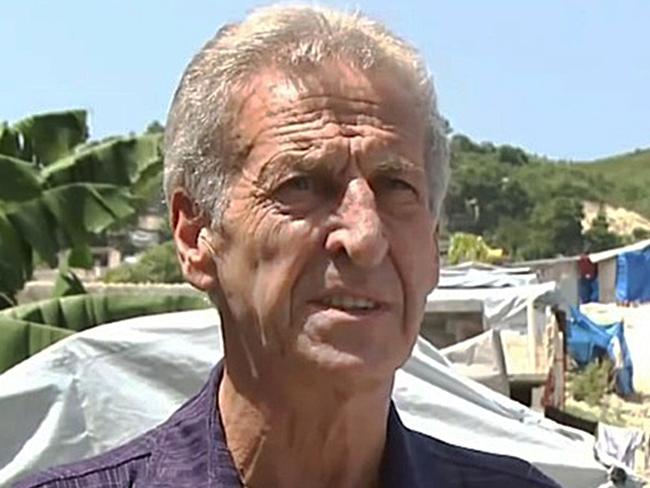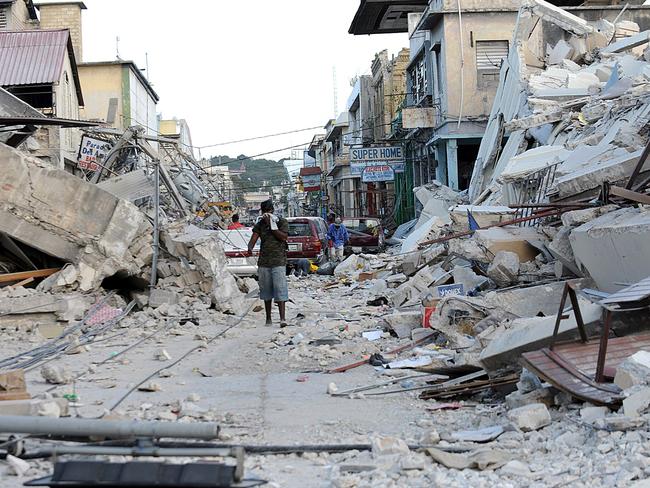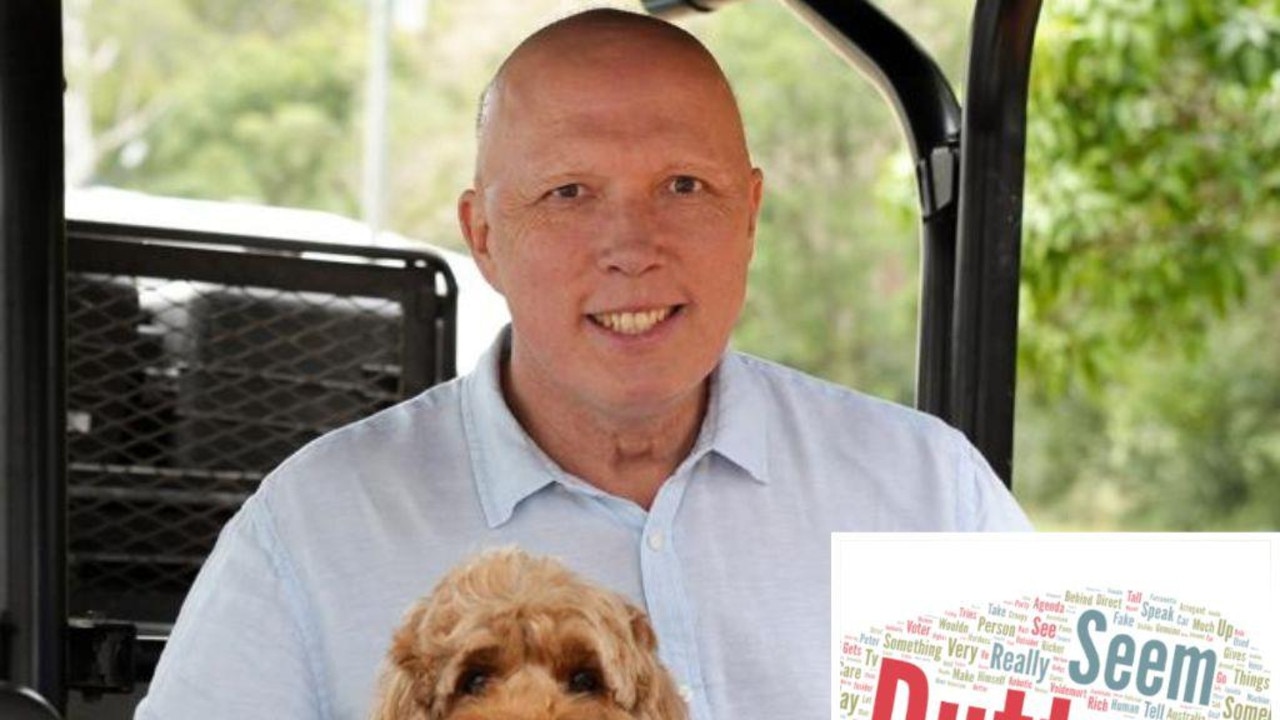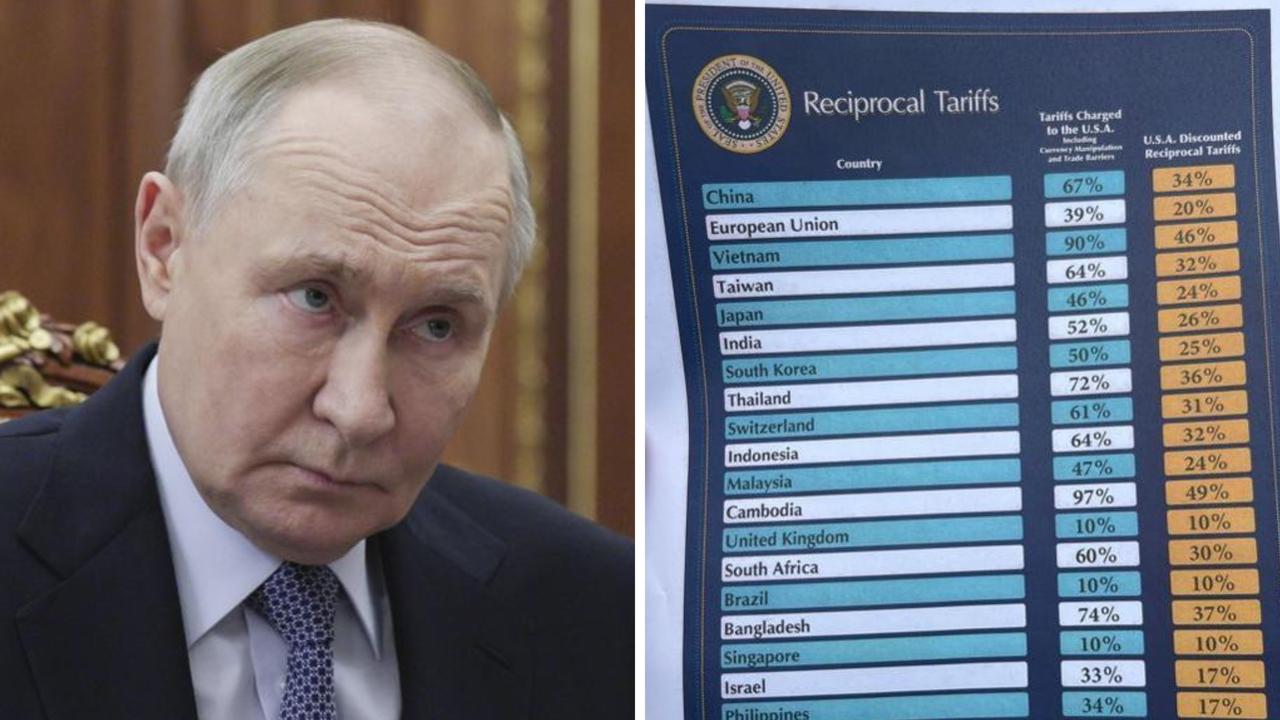Oxfam scandal highlights the sexually charged atmosphere that can exist among aid workers
THE Oxfam scandal shows the sexualised atmosphere that exists among aid workers, particularly those in life-and-death situations.
MANY see humanitarian workers as saint-like figures driven to help in war zones and disaster areas where normal people are reluctant to get involved.
But a sex scandal around British charity Oxfam has exposed the seedy side of aid work and an industry fuelled at times by illicit sex and adrenaline.
The aid world has been rocked by the allegations, including that the head of Oxfam in Haiti had “wild sex parties” with multiple sex workers after the 2010 earthquake. This includes claims that staff offered aid for sex.
Last week The Times published shocking details of the allegations that centred around a group of male aid workers.
“The group lived in a guesthouse rented by Oxfam that they called the ‘pink apartments’ — they called it ‘the whorehouse’,” a source told the paper based in the United Kingdom.
“They were throwing big parties with prostitutes. These girls were wearing Oxfam T-shirts, running around half-naked, it was a like a full-on Caligula orgy. It was unbelievable. It was crazy. At one party there were at least five girls and two of them had Oxfam white T-shirts on. These men used to talk about holding ‘young meat barbecues’.”
Oxfam has been accused of turning a blind eye to the behaviour of its staff and even allowing those accused of inappropriate behaviour to resign and get new jobs at other charities. Some have also raised concerns the girls were underage, which has not been proven.
Employees of Oxfam International have also been accused of raping women in South Sudan, committing sexual abuse in Liberia and hiring prostitutes in Chad.
The scandal widened on Wednesday to involve French group Doctors Without Borders (MSF) who revealed it had fired 19 staff in 2017 for harassment or abuse.
While the organisations have denied allegations of child sexual abuse, the prostitution claims have horrified the public and seen the withdrawal of support, including from celebrity backer Minnie Driver, and the loss of thousands of dollars in support for Oxfam.
They have also highlighted the sexually charged atmosphere that can become a feature of working in life-and-death situations.
Former aid worker Professor Andrew MacLeod told news.com.au sex appeared to be a coping mechanism for workers.
“People tended to adopt one of two models to deal with stress,” he said. “Either seek out the physical comfort of others, or revert into an introverted cocoon, I did the later.”
He said many who sign up for emergency aid work were also attracted to the adrenaline rush of working in dangerous situations, although this was not generally true for those in long-term development aid.
In the controversial 2004 book Emergency Sex (And Other Desperate Measures): True Stories from a War Zone, Heidi Postlewait writes candidly about how danger and sex can intersect.

She describes one encounter that happened after she had to dodge bullets from a sniper, along with a married Somali interpreter she had been attracted to for weeks.
“Yusuf and I get up and run around to the safe side of the building. And then the strangest thing happens,” Postlewait writes.
“I want to rip my clothes off, rip Yusuf’s clothes off, and just f**k him right there.
“I can feel this pounding inside me and I can’t wait. It has to be right now, not in 10 minutes, not five. Now. An emergency. Emergency sex.”
Afterwards she describes Yusuf pointing out a dead body.
“I make this whimpering noise and then I just start sobbing, tears and hiccups and big gulps and I can’t stop.”
Another aid worker Phoebe Greenwood described being shocked at the “sexualised atmosphere” among workers in Haiti after the earthquake.
“The scale of the devastation and death — and need — was staggering. But what surprised me most was the huge appetite for debauchery among the foreigners who had flown into help,” she wrote in a piece for The Guardian.
“I’d been expecting death. Perhaps I was naive, but I hadn’t been expecting sex.”
While she didn’t witness the hedonistic acts herself, a photographer staying at the United Nations compound reportedly told her stories about what was going on.
“There was a huge bowl of condoms next to the till in the UN canteen, he said. By the end of dinner every evening, this bowl would be empty,” Greenwood wrote.
“The aid workers and journalists packed into the compound were sleeping on floors, in courtyards, hallways, wherever there was space, so there wasn’t much privacy.
“But a rota had been drawn up, he said, and at night the meeting rooms were booked up in hour-long slots for people to have sex.”
Greenwood notes there is a “basic psychology” to the prevalence of sex in war and disaster zones, possibly to do with the need for comfort and trauma bonding.

But if charities like Oxfam are to survive and continue delivering much-needed aid they will need to examine how they can stop this behaviour from crossing the line and becoming exploitation.
Prof MacLeod claims child sexual abuse and rape have been endemic in the aid industry for years.
“We need to have visible prosecution and jail time to send the signal that this is not acceptable,” he said.
Joel Weiler, head of Belgian charity Medecins du Monde (Doctors of the World) said the Oxfam scandal was “perverting our missions, tarnishing them”.
“And it’s all the more unacceptable given that we are expected to defend human rights,” he said.
While acknowledging the scandal, Mr Weiler rejected more serious allegations that a “culture of sexual abuse” existed in the humanitarian community.
“The people on the ground are young, 25 to 35 years old. So there is misconduct ... but orgies like that, no,” said Mr Weiler, who has 18 years of field experience.
Oxfam’s deputy chief executive Penny Lawrence resigned on Monday and the UK’s Secretary of State for International Development, Penny Mordaunt, said the organisation needed to demonstrate it had the moral leadership to address the scandal and rebuild trust.
Referring to the worldwide humanitarian community, she said: “Right across the charitable sector, organisations need to show leadership, examine their systems, ensure they have clear whistleblowing policies and deal with historical allegations.”
Ms Mordaunt announced the creation of a new unit that would “look at how to guard against criminal and predatory individuals being re-employed by charities and abusing again, including the option of establishing a global register of development workers”.
The Oxfam scandal is not the first to hit the humanitarian community. In the early 2000s, United Nations peacekeepers were implicated in sexual abuse scandals in Nepal, the Central African Republic, Haiti, the Democratic Republic of Congo and Ivory Coast.
— With AFP



